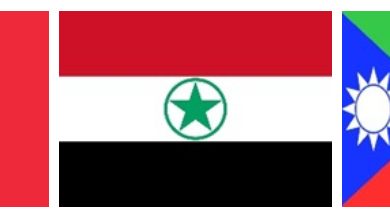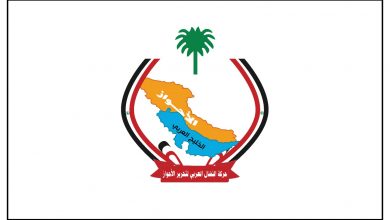Ahwazi movement calls on int’l firms not to partner in Iran’s crimes

Ahwazna
The Arab Struggle Movement for the Liberation of Al-Ahwaz (ASMLA) this week called on all international oil companies not to legitimise and reinforce the Iranian regime’s oppression of the Ahwazi people by rushing to invest in the Iranian oil sector following the lifting of international sanctions.
Attending a high-level legal conference at the London Centre for the Practice of International Law (LCPIL), prominent members of the ASMLA presented a research paper detailing the ways in which funds from the natural resources of the Ahwaz region, where over 90 percent of the oil and gas claimed by Iran is located, are exploited by the regime both to continue the oppression of the Ahwazi people, and to destabilise the wider region.
The conference, entitled ‘Arbitration and Dispute Resolution in the Energy Sector in the Middle East and Africa’, held in London on Monday 7 and Tuesday 8th March, was attended by officials from a number of leading international oil and gas companies, along with diplomats and representatives from various governments and institutions from the Middle East region and worldwide.
The ASMLA was represented at the prestigious event by the movement’s Chairman Mr. Habib Jaber, official ASMLA spokesman Yaqoub Hor Al-Tostari, and leading Ahwazi rights activist Kamil Alboshoka. The ASMLA’s research paper focused on the central importance of the Ahwaz region in security and stability in the wider Gulf area due to Ahwaz’s richness in natural resources.
The ASMLA stressed that the profits attained by the Iranian regime from the sale of the oil and gas resources in Ahwaz are used both in the brutal oppression of the Ahwazi people, who are denied any share in or profit from their own resources, and in funding terrorist entities which actively work to destabilise security and stability in the Arab world and elsewhere.
The Ahwazi delegates explained that despite the massive resource wealth contained in Ahwaz (renamed Khuzestan province by the occupying Iranian regime in 1936), the Arab Ahwazi people are maintained in conditions of Third World poverty, denied any of the wealth from the oil and gas resources on their land, denied education, work and the most basic of human rights, with Ahwazi peoples routinely arrested, tortured and often executed for such ‘crimes’ as speaking their native language or participating in any form of human rights activism.
The ASMLA representatives urged the international oil companies, investors and other delegates at the conference to meet both their legal and moral responsibilities by rejecting any collusion in the Iranian regime’s ongoing abuse of Ahwazi peoples and its funding of terrorism through trade with the regime.
The ASMLA delegation also pointed out that, having been denied any legal recourse to claim their rights, Ahwazi resistance forces have targeted oil facilities for attacks in protest at the theocratic regime’s inhumanity, with such attacks increasing in regularity in recent years. The most recent such attack took place on February 22 of this year against an oil installation in the city of Arjan in eastern Ahwaz. The attack by the ASMLA’s military wing, the Brigades of the Martyr Mohiuddin Al-Nasser, resulted in massive losses of resources and equipment at the facility. The delegates added that such attacks will continue until the rights of the Ahwazi peoples are recognised.
They added that, having been denied all other forms of recourse to right the catalogue of crimes against their people, the Ahwazi resistance will oppose this ongoing brutal subjugation by any means necessary, and that Ahwazis and other minorities in Iran will ultimately rise up to oust the brutal theocratic regime. They added that the safety of foreign infrastructure investments in the region cannot be guaranteed, with the Ahwazi resistance targeting the regime’s oil and gas facilities, which are used to fund the oppression of the Ahwazi people.
The ASMLA delegates said that the 90 years of inhuman oppression and injustice inflicted on the Ahwazi Arab peoples by successive Iranian regimes since the initial Iranian occupation of Ahwaz in 1925 cannot be described in words alone, concluding by again urging the other delegates to avoid collusion with the theocratic regime’s illegal and immoral activities.


